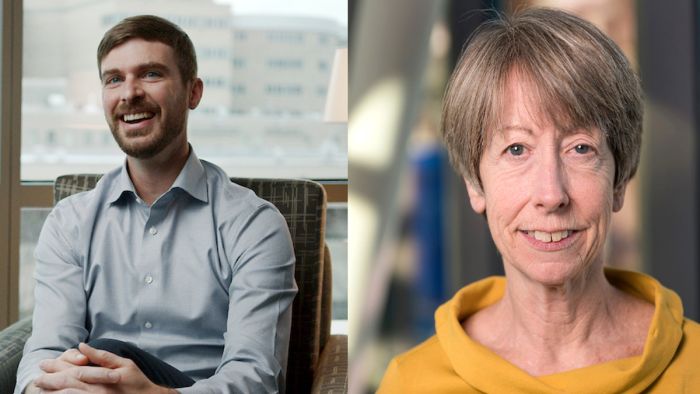Researchers at Gillette Children’s, in partnership with the Center for Advanced Studies in Child Welfare (CASCW) at the University of Minnesota, aim to determine the prevalence of social determinants of health (SDoH) within a sample of Gillette’s pediatric population, and assess for relationships between SDoH and healthcare outcomes.
The study includes Gillette experts Matthew Witham, PhD, Child and Family Services, as principal investigator and Rhonda Cady, PhD, RN, Gillette Nursing Research. Together with their U of M cohort, the study begins to fill a much-needed knowledge gap.
We already know that SDoH have short- and long-term effects on children’s health outcomes. “Current literature for adults and children without medical complexity indicates a strong negative relationship between SDoH and health outcomes,” Cady says, “But because children with medical complexity are such a small population (<1% of all children), little research has been conducted.”
Although the empirical research regarding the social determinants of health is a growing field of study, there remains a gap in understanding SDoH for children with complex medical conditions. As such, there is a critical need for studies like this - to better inform the development of targeted interventions. Witham says Gillette is an ideal place to host such research.
“Gillette serves a large population of children with medical complexity from across the state. This research provides much needed insight into the prevalence of specific SDoH within our pediatric population.”
Matthew Witham, PhD
Understanding how SDoH impact their health is critical to better care delivery
Currently in progress, the study has two main objectives: Understand the prevalence of social determinants of health (e.g., economic hardship, housing, insurance) within Gillette Children’s Minnesota patient population; and determine whether SDoH in our patient population are related to outcomes in both outpatient and inpatient settings.
“Our working hypothesis is that SDoH for Gillette patients will be positively associated with decreased health outcomes,” Witham says.
After this research is wrapped up, we can use these conclusions in daily clinical practice. Witham says, “Knowing this information, we can work to better understand the connection between these patient issues and Gillette outcomes (e.g., readmission rates, cancelations), and care for this population accordingly.”
Witham and Cady are excited to report the findings and are already pursuing further insights from the data set.
Meet Matt Witham
Matthew Witham, PhD, is the director of Child and Family Services at Gillette Children’s. He has worked at Gillette since 2017.
Witham and the Child and Family Services team take a comprehensive approach to support Gillette patients and families. From holistic health and wellness to helping caregivers remember to take care of themselves, the team is incredibly passionate about the work that they do to meet the diversity of needs of the Gillette patient population.
Witham originally pursued business management, but became intrigued by understanding the psychological, social, and emotional aspects of people and how to promote health and healing. At Gillette, he maintains his deep appreciation for the daily, collective commitment to improving the health of patients.
“Earlier in my career, I worked almost exclusively with other mental health professionals. Although I look back on that time with fondness, I believe the opportunities I’ve had at Gillette to work alongside colleagues with different professional training has been transformational,” Witham says. “I really love any project where I get to work across departments with diverse professional disciplines. There is so much we can learn from one another to improve our own work, practice, and research. It's been thrilling to be a part of helping to create spaces where people with multiple perspectives and voices come together for a common purpose.”
Join Our Partners in Care Community!
Subscribe to Partners in Care Journal, a newsletter for medical professionals.
Subscribe Today Home Page
Home Page

